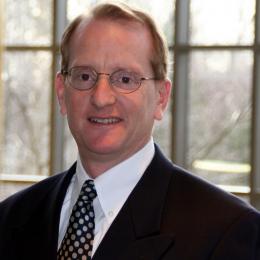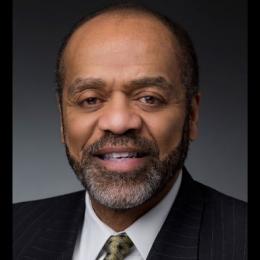
CHEAT SHEET
- Do your homework. Panelists should participate in preparation by circulating materials to ensure that the focus of the overarching presentation is consistent. If you tend to get nervous, thorough preparation can also help instill confidence.
- Keys to success. The four factors that are crucial to a successful presentation are: (1) connect with your audience, (2) ensure the flow of the presentation, (3) keep an even pace, and (4) be self-aware.
- Everything in moderation. The moderator’s role is to respectfully lead the event by keeping things moving, managing time, and making smooth transitions between panelists.
- Raise your hand. Volunteering and maintaining a connection with an organization is an essential step to increasing personal visibility. Help develop panels of interest, play an active role in presentations, and take advantage of myriad opportunities presented to you.
You’ve made the transition to in-house practice. You’ve worked hard and developed an expertise in your practice area and are now a valuable contributor to your organization. Maybe you’ve even moved into management and are responsible for directing other legal professionals. Now you have the chance to build your professional brand by giving presentations.
Participating on panels of fellow legal professionals is another superb way to share what you’ve learned, exchange experiences with your peers, and increase your visibility among your professional contacts. Before seeking to become a serial panelist, however, you should consider taking a number of steps to ensure that you are successful in this effort.
As you start this endeavor, you will need to lay some groundwork to establish your credentials as a thought-leader. Writing about your areas of interest (articles, alerts, white papers, blogs, etc.) is a great way to build your reputation. For example, years ago, after the US Sarbanes-Oxley Act was enacted, Greg Watchman wrote a paper on the new law and periodically updated it, summarizing the developing case law on the new whistleblower provision. The paper was published in numerous formats and places (including ACC Docket), and led to numerous speaking opportunities at conferences, seminars, and ACC events.
The basics
After you’ve found a speaking opportunity, you should carefully consider the fundamentals of participating in such an event. In particular, try to remember which presentations you have found the most valuable. What was the format? How extensively did the panelists use personal experiences? What was the interplay among the panelists, or between the panelists and the audience? In our experience, the most valuable and enduring sessions have been those that are well targeted to the specific audience, emphasizing who they are, what their experience level is, and what they need to know. Panelists should draw upon their different perspectives on the issue (e.g., in-house vs. outside counsel) and use war stories and scenarios to provide engaging illustrations of how the issues play out in the in-house context.
James Villa recently participated in an ACC National Capital Region (ACC NCR) panel entitled, “Wearing Two Hats — Ethics for In-House Counsel.” During the session, panelists from both law firms and in-house legal departments worked from a hypothetical in which a company’s general counsel was on vacation and an associate general counsel was faced with a pressing ethical issue. Several additional scenarios built upon this realistic fact pattern, enabling the panel to discuss issues and concerns, all of which were relevant to the audience. One critical aspect of this approach is that in-house panelists participate in drafting the hypothetical scenarios, ensuring that they are practical and relevant to the issues confronting the relevant audience.
When presenting before an audience of in-house counsel, it is essential that the panelists provide clear and useful guidance. Panelists should not focus solely on the theoretical aspects of an issue, but rather how it arises in the in-house environment and how to address it. Such takeaways will often include “to-do” lists, lists of considerations, or references to clear guidance that the audience can directly apply. For example, at a recent ACC NCR program about conducting internal investigations, the panelists provided the audience with a step-by-step list of issues to consider, including the triggers for conducting such an investigation, when to consider retaining outside counsel, how to preserve privilege, and factors that go into developing an investigative plan, among other things. Taking the steps to provide clear and substantive pointers for your audience will make the program more valuable.
Keeping these parameters in mind will help you with the second step: preparation.
Preparation
No matter how many speaking engagements you have done, it is essential to do your homework each time. Specifically, you should prepare by considering and answering the following questions:
- What are the organizers’ goals for the program? What do they want the audience to take away from the presentation?
- What is my role on the panel? How much time will I have to present my segment?
- What is the program format?
- Who are the other panelists (including some information on their backgrounds)? What roles will they play on the panel?
- What are the key topics that will be covered by the panel? By me?
- What level is the program? Basic? Intermediate? Advanced?
A good moderator will play an active role in drafting and developing an outline for the program, determining who will be the best conduit for establishing specific points, and coordinating the panelists’ presentations, talking points, and materials that will be presented. It is critical that the panelists participate in an initial telephone call to establish the groundwork for the presentation, circulate materials among the group, and then hold a final call to ensure alignment.
Once the panelists have reviewed and developed the program’s outline and approach, each individual can develop his or her content. Again, the content should be directed at the intended audience and provide clear and practical advice. If the presentation will include slides, they should be used to summarize the relevant issues and practical tips for handling them. The slides should highlight the subject matter covered, but should not be overly detailed. The panelists can illustrate the topic with stories and/or hypotheticals that will drive home the relevant points in an interesting way. The slides should minimize the use of case citations and should not include detailed summaries of statutes, regulations, and legal opinions. (If appropriate, the panel might consider making a supplemental handout available at the end of the presentation containing more detailed information, which would be appropriate for a more detailed follow up).
Ten steps to become a successful presenter
- Be proactive: Develop areas of expertise that will make you a knowledgeable speaker and actively seek opportunities to participate as a panelist.
- Be thorough: Once you are chosen to present, be sure to prepare diligently.
- Practice: Make sure that you have mastered your content.
- Collaborate: Prior to and during any presentation, coordinate with your fellow panelists to get the best results.
- Focus: Whether as a panelist or as a moderator, ensure that you address your role and the subjects you’ve been designated to cover.
- Engage: Be sure to address the needs of your audience, speak to them directly and ensure you are covering their areas of interest.
- Entertain: While not a performance, using humor and a lighter approach will keep your audience involved.
- Illustrate: Examples will help you make your points and keep the audience engaged.
- Be complete: Pace yourself so you get through your material.
- Provide takeaways: At the end of the presentation, your audience should have specific, concrete ideas that they can apply to the issues they confront.
Slides should be visually interesting, as well. Consider adding images to enhance the presentation and help maintain the audience’s attention. Further, panelists may consider using videos during their presentations to establish certain facts if they will be role-playing. Instead of a slide providing a number of hypothetical facts, an exchange between individuals in a video shown to the audience makes the presentation more dynamic and conveys the information necessary for the scenario in a fresh manner.
Does the presentation lend itself to polling the audience? At one ACC NCR program on ethics issues, the speaker presented a hypothetical and then polled the attendees about various ways to analyze the issue. He then used the results as a springboard into discussing the ethical rules, and what factors may have led some to reaching the wrong conclusion.
Panelists should be comfortable with all the materials that are being shared during the presentation. Since sections of each presentation are often prepared and revised by the moderator or a single panel member, it is critical that all panelists review and are familiar with the contents to avoid any potential disconnects or duplication of material.
Then, you need to practice, practice, practice to ensure that you master the materials that you will present. If you tend to get nervous, thorough preparation may help you manage your nerves. It also will help you determine how long your material will take to deliver, allowing you to adjust if necessary to stay within your allotted time. And, the better prepared you are, the more you can concentrate on your delivery and the audience.
Presentation pointers
When you arrive at the event, you need to be your best you. How you conduct yourself before and during the panel will impact how effectively your message is received. Some things to keep in mind:
- Dress the part of an authority. Even if your work environment is business casual, that is not necessarily appropriate for a panel.
- Speak deliberately and with confidence. If it’s comfortable for you, you may want to walk around. At the very least, try to gesture and be expressive. You must project energy and interest in the subject matter because if you seem bored, your audience will follow your lead. You need to sell what you are saying.
- Connect with your audience. You want to make eye contact with the audience, and look at the other panelists when they are speaking. Ask other panelists questions or for their opinions. Ask the audience a controlled question to gauge their experience (“How many of you have…?”) and integrate that information into your presentation. Often, the most enlightening points come up during unscripted sidebar discussions among the panelists.
- Ensure the flow of the presentation. You should aim for a smooth delivery. Avoid “um,” “you know,” “like,” and “sort of.” Those fillers will undercut the impression you want to make.
- Be self-aware. Your audience will contain a diverse group of lawyers who may have wildly different experiences. Be mindful of that fact when you are preparing your presentation and when you are addressing them. Be confident, but don’t take yourself too seriously. Engage in a dialogue; don’t lecture. And be sure to emphasize the practical aspects of what your panel is addressing.
- Keep an even pace. Watch the clock and manage your time effectively to cover all your material within the time you have been allotted. If you are running over, skip slides to stay on schedule. Never eat into another speaker’s time.
Equally important are these “don’ts”:
- Do not fidget or otherwise distract from the other speakers. Be respectful of other panelists while they are presenting. If you must review notes to prepare for your upcoming segment, do so carefully and without drawing attention to yourself.
- Don’t read your slides. Highlight something of note on a particular slide, but do not repeat word for word what is contained on it. One note of caution: If the screen on which your slides are being presented is behind you, be mindful of looking backwards when talking. This is a natural tendency and utterly ruins any connection you are trying to make with the audience.
- Don’t leave your mobile device on while you are on a panel. You don’t want to run the risk that it may ring or vibrate or otherwise distract you while you are speaking, or otherwise disrupt the presentation.
We should make a note about the use of humor. Regardless of their pedigree, nobody wants to listen to a panel of humorless lawyers regurgitating facts and dry rules. That’s a sure-fire recipe for a boring and completely forgettable presentation. Panelists should feel free to relax, be themselves, and have some fun during the presentation. One of the reasons to have several preparatory calls is to allow the panelists to get to know one another and be comfortable with the give and take that’s required of a good panel. This is particularly important when the panelists don’t know one another other than through their participation on the panel. Setting this relaxed tone and sometimes being the “emcee” for such a relaxed approach, falls squarely on the moderator.
Lawyering your presentation
You wouldn’t be a good lawyer if you didn’t make sure that someone makes these two disclaimers at the outset of the presentation:
- “All remarks made by today’s panelists are their own opinions, and do not constitute legal advice or necessarily reflect the viewpoints of their company or firm.”
- “Please observe ‘The Chatham House Rule’ with regard to the speakers’ comments. You are free to use the information received, but neither the identity nor the affiliation of the speaker(s), nor that of any other participant, may be revealed.”
Sometimes, humor can be used to grab the audience’s attention and help them engage with the subject matter. For the panel that served as the basis of this article, the speakers decided to have some fun with the audience, declaring at the beginning that the subject was “personal branding” — much to the surprise of the audience. Following that, the moderator gave a brief and incomplete description of the topic. One panelist proceeded to read word for word from his notes; another made a comment that was directly and abruptly contrary to the statement of a co-panelist; and yet another panelist was busily texting on his phone. After indulging in this charade for a few minutes, the panelists broke character and noted that this was indeed a discussion about participation and that the audience had just seen a number of examples of what NOT to do — which resulted in laughter and appreciative applause from the audience. We’re trying to inform and engage our audiences — but there’s no reason that we can’t entertain them in the process.
A successful moderator will keep things moving and manage the time, making smooth transitions between panelists, and asking relevant and productive questions. Ideally, your panel’s preparation has revealed which speakers should address certain areas, adding to the value of your participation and easing any anxiety you might have about the event. And, ever the diplomat, the moderator will politely manage the presenters if they talk for too long. If the panel includes questions from the audience, there’s always a risk that someone will go wildly off topic and inhibit the flow of the presentation. A successful moderator may consider directing a question to a particular panelist, rather than simply tossing it to the panel as a whole. He or she may also consider rephrasing the question if it is off topic or if it assists the flow of the presentation. Finally, he or she should not be shy about redirecting an awkward or out of place question to something that the panel can address. The judicious use of humor, one not directed at the questioner, might be useful in such circumstances.
Tips for the moderator
Being a successful moderator for a panel of distinguished panelists is a tough job, requiring the ability to hide in plain sight. The moderator must take the lead role in developing the agenda for the presentation, soliciting both input and buy-in from the panelists, learning which panelist wants to focus on what particular area of interest, and then acting as a conductor during the presentation. More important than keeping the presentation on schedule, a successful moderator thinks on their feet, guiding the discussion as it occurs, while developing interesting lines of analysis. A skilled moderator should not feel shy about inserting his or her own opinion into the discussion, whether as a stalking horse for others to build upon, or based on personal experiences. Further, the successful moderator provides transitions between panelists and the distinct parts of the program, helping to guide the audience through the presentation.
The moderator must always be mindful of the focus of the panel and bring the discussion back around to these objectives, remembering what the audience came to hear, and what the panel wants to convey. Further, a successful moderator will ensure that the panel does not become a discussion among the participants only — or a discussion that appears to be too self-referential — as that’s always a risk when dealing with accomplished panelists. Setting the stage for this sort of exchange, while keeping the focus on the audience, are critical aspects of the moderator’s job.
What’s more, a moderator should try to establish a relaxed, contented atmosphere for the panel, one in which panelists are comfortable venturing opinions. For this reason, a successful moderator may find that using humor is more a part of their toolkit than for the panelists. It’s a way to leave both the speakers and the audience at ease and help create an engaging, in-depth discussion.
Being a good panelist or moderator takes practice, so build up your experience to develop and maintain your skills. Find opportunities both internally at your organization and externally in the legal community. Give briefings, lead brown-bag lunch discussions, or conduct training sessions. Speak at conferences. Teach a course.
How do you launch your speaking career? Most organizations thrive on volunteers, so find an organization that you are interested in and take responsibility for something, anything, to increase your visibility within that organization. Volunteering for an ACC chapter or national committee is a natural way to establish yourself with your peer group. Let them know you are interested in speaking at or moderating programs, webcasts, or sessions of the ACC Annual Meeting. Keep your eye out for good topics or propose a specific program. After establishing that you have “sweat equity” in an organization, you can step up and help develop panels of interest, allowing you to take a more active role in such presentations. And once people understand that you are a “workhorse” and not a “show horse,” you will often find that you’re given opportunities to take a more substantive role in the organization.
Before long, you will have burnished your professional brand and reputation.
The authors wish to thank Susan Borke and Cynthia Boyle for the initial program idea and outline.








